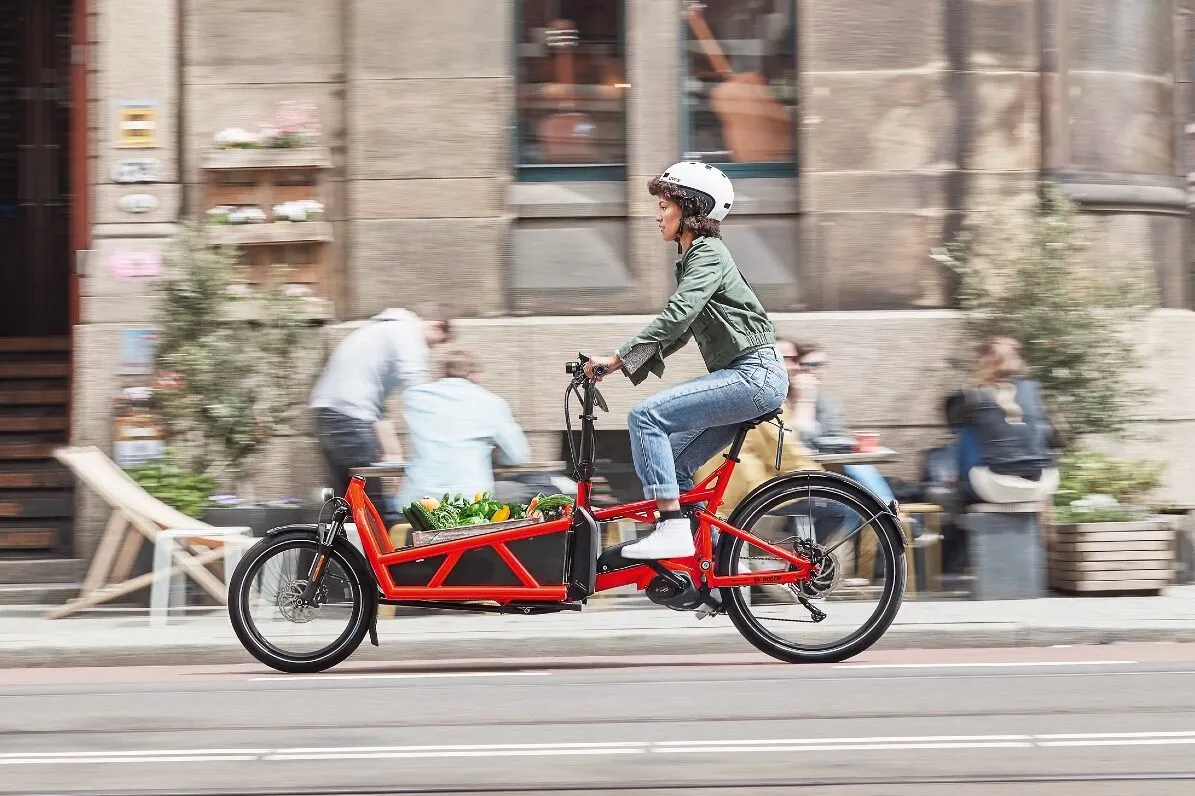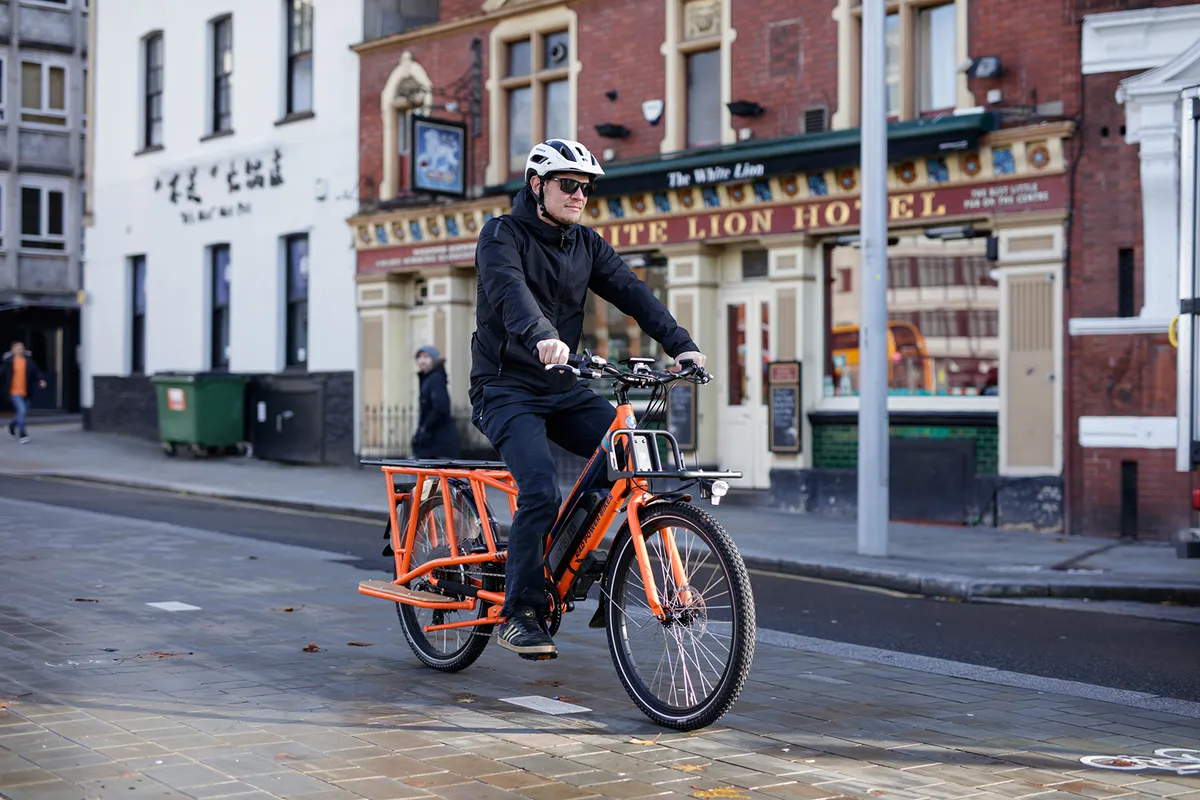Electric cargo bikes could change people's perception of cycling and replace cars for many tasks, including school runs, shopping, family outings and commuting, a new study suggests.
The study, published in the journal Geoforum and supported by the UK’s Engineering and Physical Sciences Research Council, was led by Clara Glachant of the University of Eindhoven.
Commenting on the study’s findings, Glachant said: “Our findings suggest that e-cargo cycling may help cultivate a cycling culture both at the household level and the community level.
“They may reshape ideas of who belongs on the road, who is entitled to space. This could help to reduce anti-cyclist sentiment which would help active travel contribute more to sustainable transport.”
The study also found that e-cargo bikes lead to a change in users’ view of cycling, seeing it as a practical activity, not just a pastime for leisure or fitness.
Increased use by female riders

49 UK families living in Brighton, Leeds and Oxford were loaned an electric cargo bike for one month each during the summer of 2023, with 11 families additionally loaned an e-cargo bike for winter riding from October 2023 to March 2024. The bikes were a mix of longtail and front-loading designs, and 51% of the households taking part already owned one car, with 47% owning two or more.
While Oxford has a high rate of cycle use, the figure in Leeds is low, with a previous survey finding it to be one of the UK cities least friendly to cyclists; Brighton sits between the two. The families were recruited via local publicity and follow-on surveys, so were found to have had a predisposition to trial cycling rather than driving and be more keen to reduce car use than the national average.
67% of participants were between the ages of 35 and 49, and 67% already cycled weekly.
Findings on use of the bikes suggested 59% of their main users were female, in comparison to cycle use in general, with only 20% of British Cycling members being women.
Different perceptions

Among the study's findings was that there were benefits for the perception of cycling in the community, helping to normalise it, and also changing study participants’ views of cycling.
“It’s also about culture: people’s habits, identities and perceptions of transport. Our research shows e-cargo bikes can help reshape these, challenging what psychologist Ian Walker has coined ‘motonormativity',” Glachant says.
Several study participants commented on the different perception of car drivers of riders of cargo bikes compared to recreational riders, feeling they were given more road space and that drivers were more patient.
On the other hand, some participants reported feeling out of place and unconventional, as well as having concerns over child safety.
The researchers suggested that e-cargo bikes could also shift the balance of cycle commuting and utility cycling in the UK away from its current male domination, encouraging more women and children to travel by bike.
A shift away from car use?

While previous studies had concentrated on the use of e-cargo bikes to replace motor vehicles for last-mile deliveries, the study was one of the first to look at their potential to replace motor vehicles for family mobility.
Many of the families’ trips included carrying passengers and, unlike riding a single-person bike, they reported that an e-cargo bike enabled riders and their passengers to interact with each other, more like riding in a car, although how effectively depended on the design of the bike.
The participants found it also enabled them to connect more with their surroundings and local communities than sitting in a car, which previous studies have characterised as ‘private-in-public’ spaces, limiting social interactions in comparison to cycling. They felt they were given more road space by drivers than on solo leisure rides, too.
The study points to surveys that show that in the UK in 2021, 75% of mileage was by car or van and only 1.7% by bicycle.
The 2024 National Transport Survey found that 17% of journeys under one mile were made in a car or van, with 81% on foot. That tipped to 69% by car or van for trips of one to five miles and 83% for five to 10-mile journeys, excursions for which e-cargo bikes could often substitute.
But the study points out that, while 90,000 cargo bikes were sold in Germany and 70,000 in France in 2022, only 4,000 were sold in the UK.




